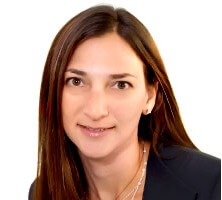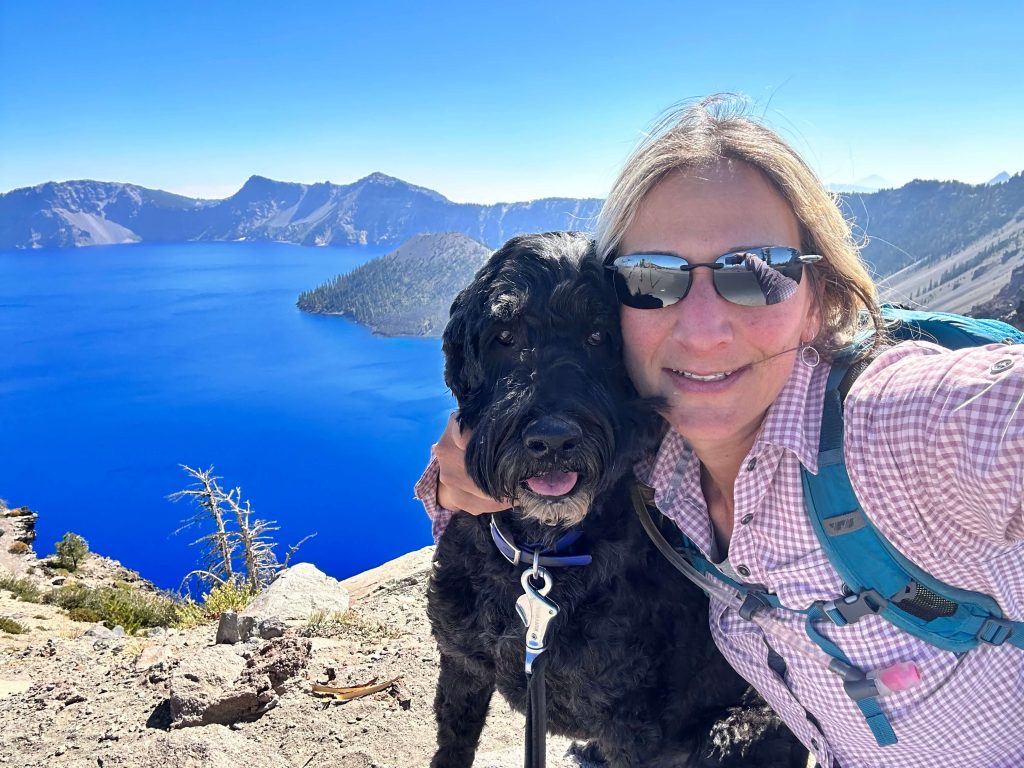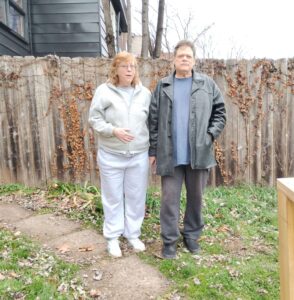We’ve said it before, and we’ll say it again: Catapult is what it is because of our people. From our financial counselors to our leadership team, we’ve been intentional about building a culture that values excellence as much as empathy. A big part of shaping that culture comes down to strong HR practices — an often overlooked but essential piece of what makes any organization not just function, but thrive. When staff feel seen, supported, and energized, that spirit naturally extends to the participants who come through our programs.
Behind many of those HR practices is longtime Catapult collaborator Lisa Tannenbaum, who has been part of our journey from the early days, first as an HR consultant, and now as a dedicated board member. A retired human resources (HR) professional with more than 20 years of experience, Lisa has worked across every area of talent management, from recruiting and onboarding to performance management, compliance, and compensation. Throughout her career, she specialized in helping nonprofits and professional service firms through what she calls “HR on Call” partnerships — offering guidance, perspective, and hands-on support when and where it was needed most.
We sat down with Lisa to learn more about what inspires her about Catapult, the culture she’s helped support behind the scenes, and why she believes HR has a powerful role to play in advancing equity.
To start, tell us about your background. What originally drew you to the field of HR, and what has kept you passionate about it over the years?
As an HR professional, I loved what I did. I got into it because I loved the intersection of business and people, and my first role in recruiting at Mellon Bank confirmed that. It taught me early on that HR isn’t just about policies — it’s about shaping the culture and direction of a company. Nonprofits were really my passion. That’s why I eventually left the corporate world and focused on smaller organizations. Professional firms tend to be more structured and focused on efficiency, while nonprofits require more flexibility — and more heart. There’s a much deeper connection to the mission, but often fewer resources. You really learn to be creative and people-focused in a different way.
Throughout my career, I was particularly interested in finding ways to support individuals while also shaping systems. I’ve always believed that both are needed for progress. That belief carries into what Catapult does. I actually wasn’t initially involved with Catapult because of my HR background. That’s the expertise I bring now, but I first connected with them back when they were Circles. I got involved after participating in a poverty simulation — it really opened my eyes in a way nothing else had. While I was with Circles, I was matched with a woman navigating poverty. Over time, we became close friends. And I saw firsthand the difference that support networks and access to the right tools and resources can make.
She’s now a homeowner, and all of her kids have either earned or are in the process of earning an advanced degree. My experience with Circles showed me that lasting change is indeed possible, and I want to be part of making that happen.
Catapult prioritises creating a healthy and supportive culture for both staff and the individuals who participate in our programs. How have you helped shape that as a board member, and what do you think makes Catapult unique in that regard?
A couple of years ago, I led a cultural assessment, during which I interviewed every employee and leader at Catapult. I don’t recall all the specific findings, but I remember being blown away by the overall sentiment. Every employee expressed loyalty and genuine appreciation for the leadership and the work environment. In over two decades of working with both nonprofits and for-profits, I have never encountered an organization where everyone seems so happy with the culture. It’s really special and unique.
As for my role, the leadership team has truly built that culture. I’ve just supported them along the way. I’m a resource and sounding board for Lingaire Njie, Catapult’s Chief Operations Officer, who is incredibly capable and handles much of the day-to-day. For example, I might provide input on hiring practices, help review policies, or offer guidance on sensitive personnel matters. There were moments when Tammy Thompson [Catapult Executive Director] or Lingaire would share an idea — maybe something I wouldn’t have recommended back in the day — but it worked for them. They’re forward-thinking. They understand what their employees need, and they balance that really well with running the business.
Can you give me a behind-the-scenes look at some of the HR decisions Catapult makes to create that kind of environment?
I think it starts with respecting that people have personal lives, and recognizing how important it is to support that balance. When people feel supported, they’re more productive, loyal, and motivated to do well. It sounds basic, but a lot of organizations don’t do it. And Catapult goes beyond that — they pay more than a living wage, offer generous time off, and give people flexibility. If you need to take care of something, go do it. Just get your work done.
Catapult’s work is deeply rooted in economic justice and equity. How do you think HR practices can advance that mission, both within organizations and in the broader workforce?
HR can either reinforce inequity or help dismantle it. At Catapult, we try to lead by example — ensuring fair pay, inclusive hiring, transparent policies, and a workplace where everyone feels valued and has a path to grow. When people are satisfied at work, they’re in a better place to help clients. And ultimately, that’s the goal.
What excites you about Catapult’s future?
Catapult doesn’t just serve people — it believes in them. The model, the emphasis on storytelling, the ability to pivot and respond to community needs — that’s rare. What excites me most is the growing recognition that our model works. I see Catapult becoming a more visible and vocal advocate for inclusive, community-rooted development.
Is there anything else you’d like to share?
I’ve been involved since before Catapult existed, and while the mission has always been about building futures, the way we do that has grown so much. What started as a relationship-based support system has expanded into an entire ecosystem, spanning entrepreneurship programs, homeownership pathways, trauma-informed financial counseling, and even policy work.






